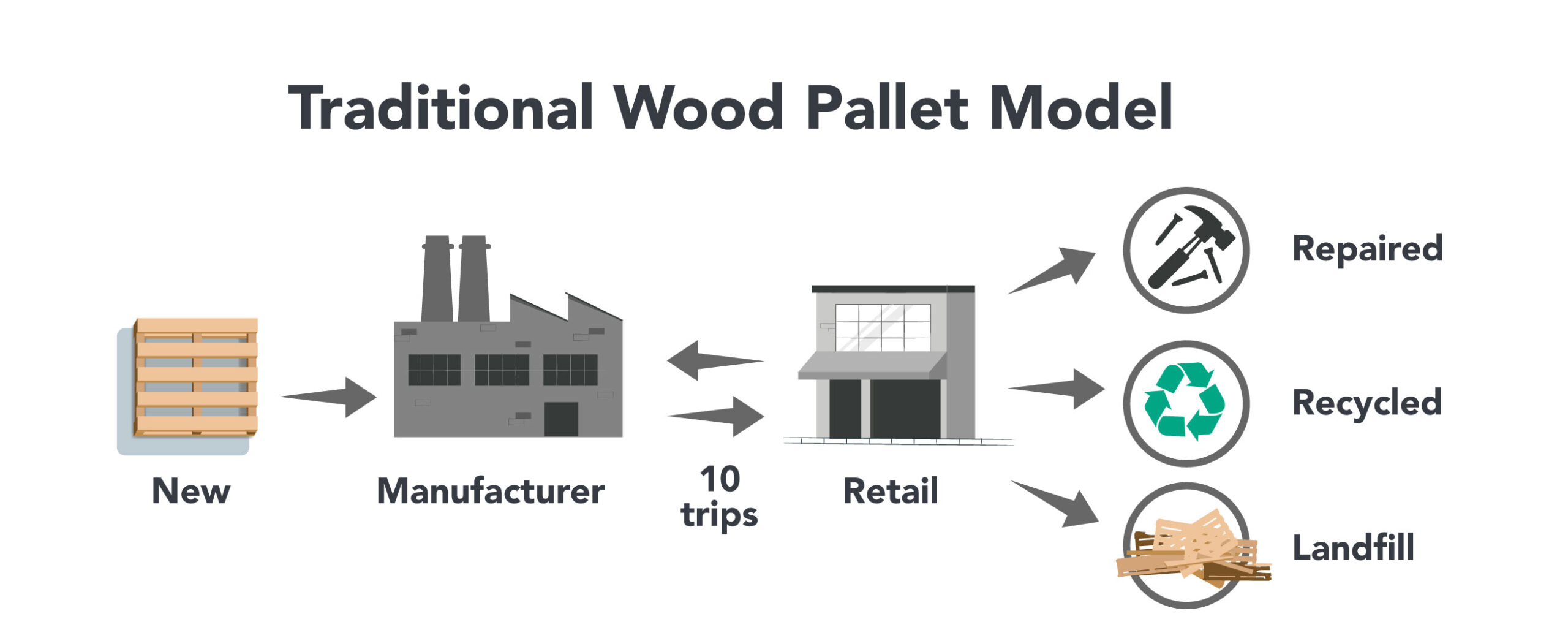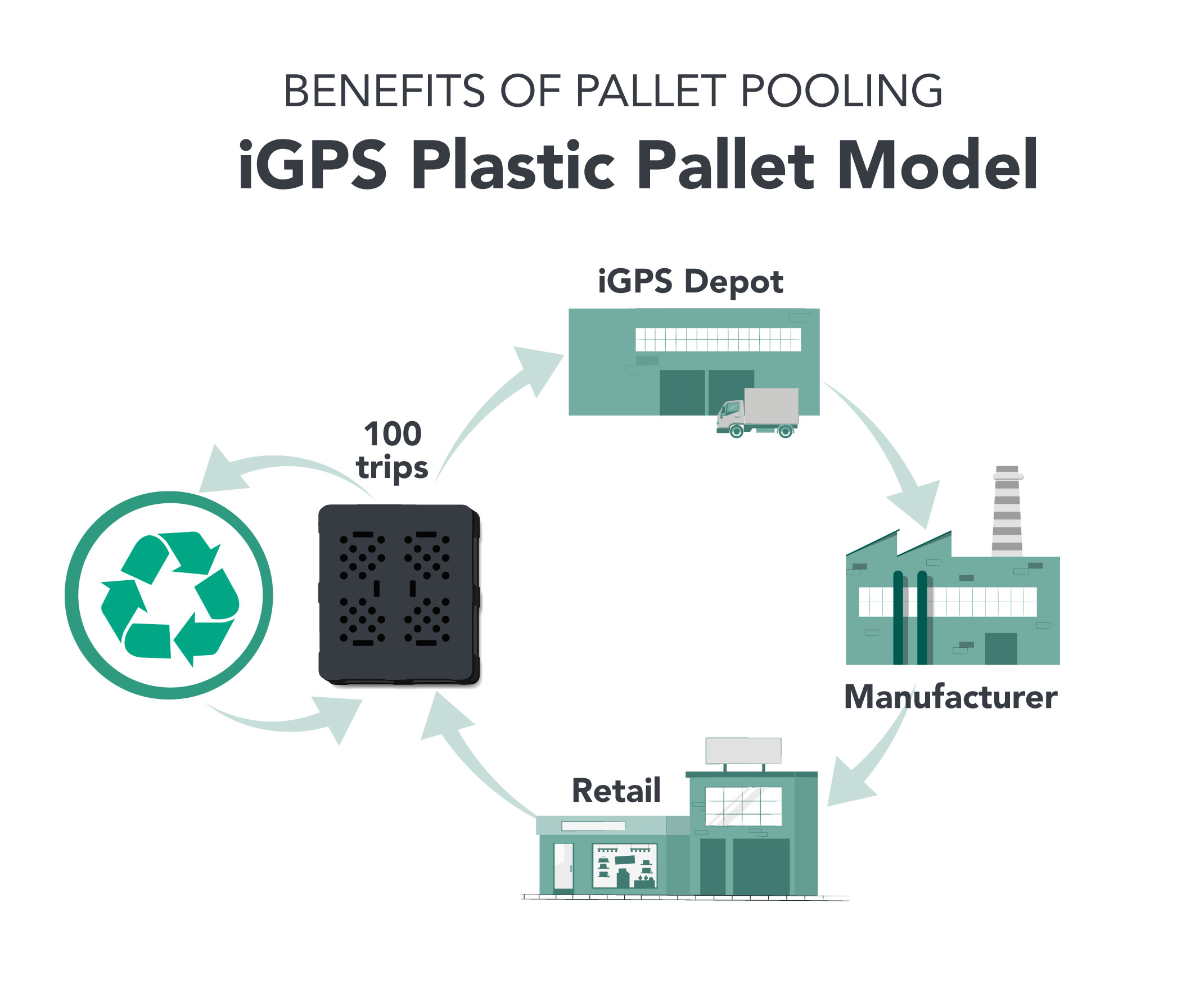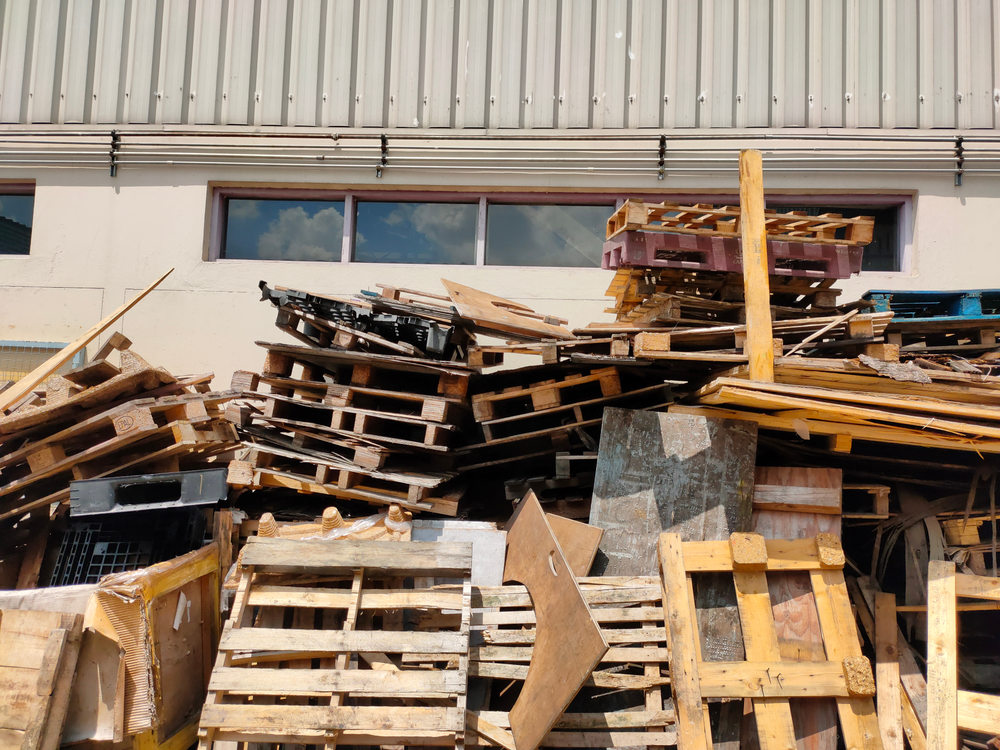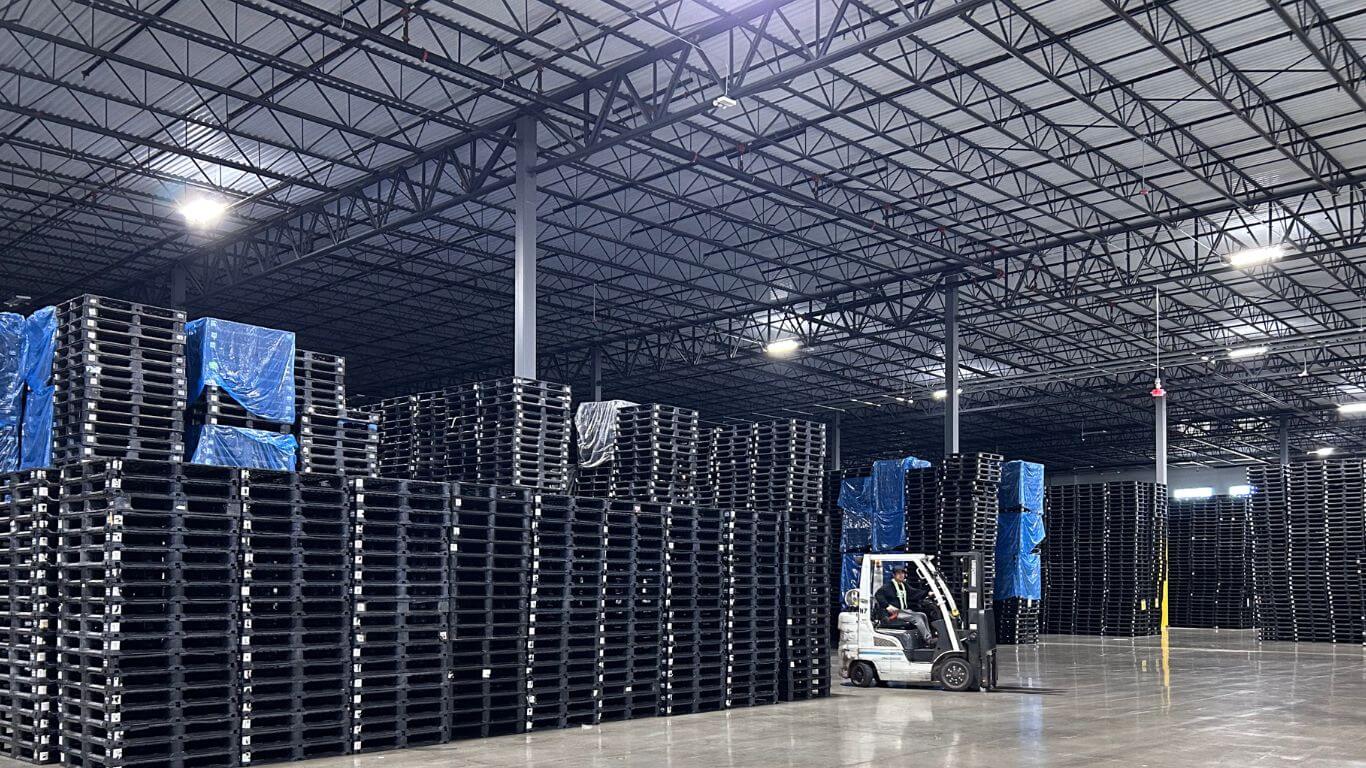ARTICLE UPDATED ON JULY 17, 2024
To dispose of pallets, offer them for free to DIY enthusiasts or find a bulk buyer. Recycle them by turning the wood into mulch or donate to a recycling facility where they can be repaired or mulched. If pallets are severely damaged and non-recyclable, disposal at a landfill may be necessary, though less desirable.
A cost-effective answer to the question of how to dispose of pallets can be hard to find. Most retailers, warehouse managers, and manufacturers have had to deal with a big pile of unusable pallets wasting space on their floor or near their loading docks. Often, these pallets are left to sit because getting rid of them seems like too big a hassle.

The best way to dispose of pallets is simply not to own them in the first place. Pallet pooling puts the responsibility for dealing with pallets–whether those pallets are at the end of their useful lives or simply at the end of the supply chain–in the hands of a pooling provider. Choosing a plastic pallet pooling provider makes pooling even more efficient since high-quality plastic pallets aren’t disposed of, but merely recycled into “new” plastic pallets.
How to Dispose of Pallets: 5 Options
It’s important to note that each of the following options will cost your business in some way. Throwing away pallets or donating them means you won’t recoup any of the money you spent on the pallet, and if you decide to repurpose them, labor and time need to be invested in getting them ready for resale. Here are five ways to dispose of pallets.
- Make them free for pickup: If you aren’t dealing with a lot of pallets, one possibility is to offer them for free to anyone who wants to pick them up. Used pallets are currently in demand among consumers for a range of DIY carpentry and gardening projects. It isn’t too difficult to get rid of a handful of pallets by offering them to anyone who will take them away.
- Find a bulk buyer: The question of how to dispose of pallets is such a common one that it has created an industry. Bulk buyers will purchase wood pallets, usually for pennies on the dollar, in order to turn them into mulch, particleboard, or other products.
- Turn them into mulch: Companies can recycle wood pallets in-house by taking them apart, running them through a wood chipper, and selling the result as mulch. While this is perhaps the best way to recoup some of the cost of your pallets, it’s also labor-intensive and requires specialized equipment.
- Donate them to a recycling facility: Pallet recyclers often collect used wood pallets to repair and sell them for reuse by other businesses. Pallets that are beyond repair may be mulched. Recyclers often pay a small amount per pallet for sizes that are in demand.
- Send them to a landfill: Most people looking for answers to the question of how to dispose of pallets are actively looking for alternatives to the common solution of taking their used pallets to a landfill. They want to avoid the waste, hassle, and landfill fees, which are common in areas with high volume. Unfortunately, this is often the only option for pallets that are severely damaged, can’t be recycled (like those with mold or pest issues) or are in non-standard sizes.
Pallet pooling keeps pallets in a closed loop where they are reused over and over.
Today, companies are not only looking to avoid the hassle of dealing with unwanted pallets, but they’re also seeking to maintain a circular business model in which materials, equipment, and packaging are reused rather than thrown out. Pallet pooling supports both these goals by keeping pallets in a closed loop where they are reused over and over until the end of their lifespan, when they are repaired, recycled, or disposed of by the pallet pooling service.

Learn Why Plastic Pallets Are Best for Pooling
One of the many benefits of pallet pooling is that it eliminates the need to own and run an internal pallet pool, and, as a result, the need to dispose of pallets. Instead, pooled pallets are rented from a third-party supplier. A pallet pooling provider handles the maintenance and logistics of pallet retrieval, saving companies time and money. And since pallet pooling doesn’t require a large upfront purchase like buying a fleet does, it offers even small businesses the opportunity to use the highest-quality, most innovative pallets available.
However, when considering partnering with a pallet pooling provider, it is important to choose the right pallet for your supply chain. Plastic pallets are the most innovative pallet choices available; they’re lighter, longer lasting, and more resistant to damage than wood, making them ideal for companies looking to increase the efficiency of their supply chain. At the end of their long lifespans, high-quality plastic pallets aren’t taken to a landfill, but are ground down and used to create new pallets. This process is the most responsible method of pallet disposal, as it ensures resources are kept in a closed loop and used to their fullest advantage.
Companies interested in the benefits of plastic pallets often use recyclable, pooled plastic shipping pallets from iGPS. Their recyclable, lightweight plastic pallets also incorporate smart features which make them traceable throughout the supply chain. These features allow companies to capture data at any point of distribution, ensuring better planning and efficiency.
Instead of asking how to dispose of pallets, perhaps supply chain and operations managers should be asking themselves why they buy and manage a fleet of pallets at all. Plastic pallet pooling is the best way to build a simplified, circular supply chain while effectively using resources.
FAQ
What can you do with rotten pallets?
Rotten pallets can be repurposed or disposed of responsibly. Break them down for composting, as the decayed wood can enrich soil. Use the wood as firewood, ensuring it’s safe to burn. You can also take them to a recycling facility specializing in wood waste or dispose of them at a landfill if no other options are viable. Always follow local disposal regulations.
Why are wooden pallets a problem?
Wooden pallets cause problems due to their bulk, making disposal challenging. They can also harbor pests, mold, and bacteria, leading to contamination risks. Improper disposal contributes to environmental waste, and pallets in landfills occupy significant space. Damaged pallets can turn into real safety hazards if reused without proper repair.
Why can’t you burn blue pallets?
You can’t burn blue pallets because they are typically treated with chemicals, which can release toxic fumes when burned. These chemicals pose health and environmental risks, making burning an unsafe disposal method. Make sure you follow local regulations for the proper disposal of treated pallets.
Companies committed to proper pallet disposal use plastic pallets from iGPS, which are lightweight, recyclable, and help streamline your supply chain. For more information, contact us at 1-800-884-0225, email a specialist at switch@igps.net, or visit our contact page.




